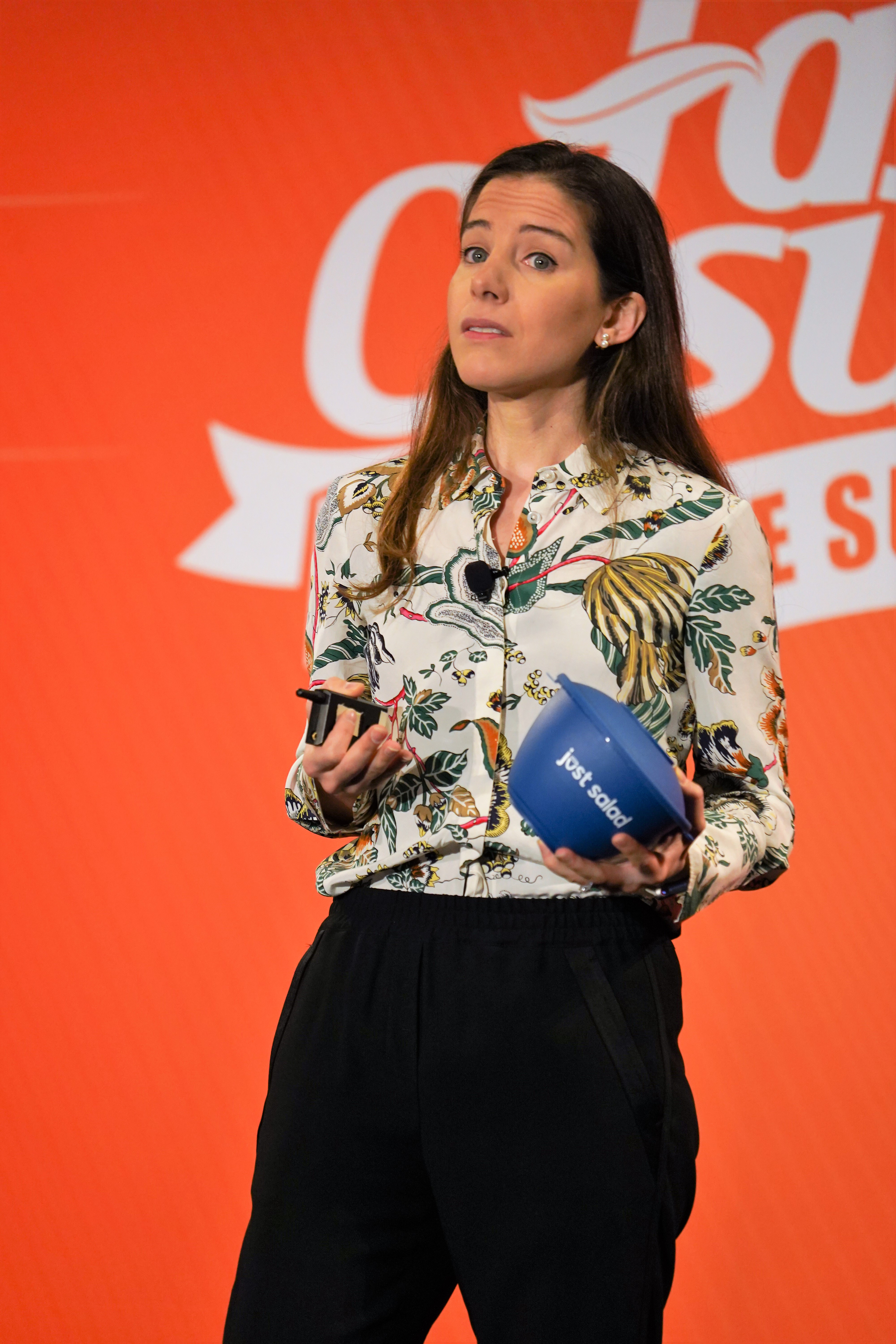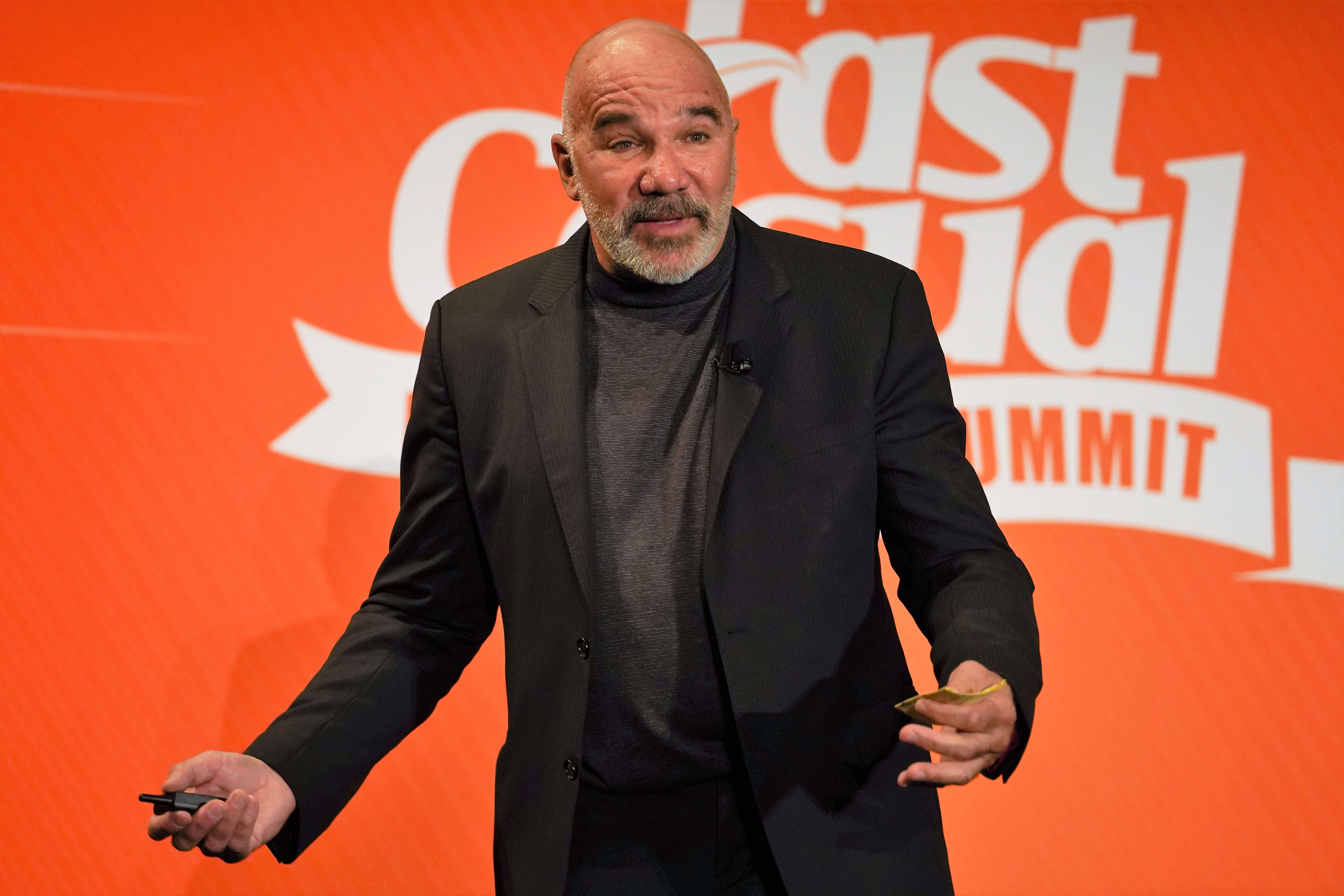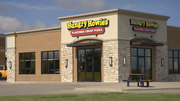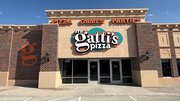Fast Casual Executive Summit
Restaurateurs expound on benefits of blue bowls, food halls, 'going through hell'
When restaurant executives take to the stage to share some of their most heartfelt views of the business, participants are guaranteed a front-row seat for some powerful education as gleaned from some of the business's best and toughest lessons.

November 12, 2019 by S.A. Whitehead — Food Editor, Net World Media Group
Passion for the business. As a running theme of every Fast Casual Executive Summit, it's not surprising that one of the first sessions of the annual event last month in Austin, Texas was also the passion restaurant executives have for their businesses along with the very special traits that make them what they are. The session, aptly dubbed, Executive Perspectives, gave the stage and the microphone to three restaurant leaders, who each possessed particular strongly held beliefs around a facet of the business, their brands or their careers, in general.
It's the kind of stuff that gets to the very core of what restaurateurs cherish about what they do and how they do it, and it's all but impossible to walk out of the room after hearing the three 20-minute solos without feeling some enormous proud about the business and the people in it.
Aside from moderator and Rakuten Ready co-founder and CEO Jaron Waldman, this year's panelists, included:
- Just Salad Chief Sustainability Officer Sandra Noonan.
- Press Waffle Co. founders, Bryan and Caleb Lewis.
- Porch Swing founder and CEO Antonio Swad.
By the time all three had finished their presentations, the audience of restaurant executives was no doubt feeling new respect for the place of food halls currently in the restaurant business, as well as those proverbial "train wrecks" every foodservice executives gets mired in. But the learning all started off with one brand's commitment to, and planet-pleasing efforts around, sustainable restaurant operation.
 |
| Sandra Noonan (Photo by Willie Lawless). |
As Just Salad Chief Sustainability Officer Sandra Noonan showed and told the crowd, her brand and its team have been quite literally "bowled over" by the power that one operational move has had to divert a whole lot of trash from the waste stream. Noonan said it all started more than a dozen years ago, when leaders at the nearly very "green" green-centric brand were bothered by the fact that they used plastic to contain their menu items.
So that same leadership team opted to make a pretty daring move, particularly at that time, to see if customers would support a simple idea of using reusable bowls. In exchange for agreeing to use the brands reusable blue bowls, customers got both a free salad topping any time they ordered and the knowledge they were doing something good for the planet. And as it turns out, Noonan said, "Our customers love it."
So a blue bowl — big deal, huh? But, turns out it was and is, because those bowls have created a truly powerful marketing touch-point for the chain's customers who want to not only do some good by eating out, but really kind of be part of a whole identifiable "club" that does good, as seen in their blue bowls.
Now propelled by the success and energy of their customers, Just Salad is not looking back. Instead, they've now introduced a VIP bowl, which allows owners to "cut the line" during rush hours, as well as a so-called Green Unlimited bowl, that entitles the bearers to a salad daily for a set annual fee.
"The bowl is just the beginning of our sustainability efforts. We have ambitious plans for the next decade because ... sustainability matters to our guests," she said, adding that half their customers have reported cutting their use of disposable plastic over the last year alone.
Noonan said clearly their customers are ready and willing to support more efforts in this directions, which is why the brand plans over the next 12 months to three years to really get pretty single-minded about building a chain focused on the idea of zero waste through both the use of smarter packaging and reduction of restaurant food waste.
As a result of their efforts, they expect to divert some 100,000 pounds of plastic from the landfill, while using organic composting to halve the amount of food waste they currently produce. Some of the methods they'll use to accomplish these hefty goals include the introduction of voluntary take-out bags (rather than automatically using them for all orders) and reducing the size of the bags used, as well as changing cutlery and using boxed water and compostable packaging — all designed to eliminate the waste before it becomes that, by turning to smarter recycling.
"We feel we're a part of a larger trend in the food industry ... that involves working toward no waste at the end of the production process."
After all, as Noonan sees it their brand is proving that a strong business case can be made for sustainable operations since they can really be a big brand enhancer that strengthens brand loyalty and affinity. The proof, she said, is in that little blue bowl.
A word for those waffling on food halls
Depending on the day and the place, anyone interested in the idea of food halls can find evidence online that they're either dead and/or dying a quick death, or conversely, the single thing that will save the restaurant industry from impending doom. The truth, according to the founders of a three-year-old customizable Belgian waffle brand, is somewhere definitely toward the positive end, but only when a food hall is done "right."
 |
| Caleb and Bryan Lewis (Photo by Willie Lawless). |
Bryan and Caleb Lewis started Press Waffle Co. in Dallas because they saw a hole in the market for the sweet treats in all their many forms. But like many operators new to the industry, they opted to try out the concept initially as a food truck, which they told the audience at the summit was "an awful experience."
But after a Kickstarter Campaign funds, they opted to get a little more serious by opening a food hall location in late 2017. For these restaurateurs, it was an ideal launching pad, but one they're staying with even after a $300,000 investment through a win on Shark Tank. In fact, they are now in four food halls in Texas and Oklahoma.
Their enthusiasm for these multi-brand concepts — sometimes with a strong entertainment or other activity focus — was contagious and not without cause. Commercial real estate news site, Globe Street, dubbed this the year of the food hall, with estimates that more than 450 such venues expected to open next year. And part of that success is due to the increasing fact of restaurant business life that pulling consumers out to actual physical restaurant locations has gotten harder than ever in the age of delivery.
That fact — along with the reality that a lot of consumer goods shopping now also takes place online — is leading brick-and-mortar restaurant concepts to look for venues that give consumers more reasons to head out to places by not only offering cuisines for many preferences, but shopping and entertainment to go with those edibles.
"Developers are looking for reasons to get people out and shopping ... and there's a rise in the 'experience economy,'" Bryan Lewis said. "Developers see food halls as places to provide experiences for customers with a less than 10% failure rate among food halls. ...That is remarkable for a developer to put a large-scale anchor tenant into a development with less than a 10% failure rate."
As a result, malls are now gravitating more toward these concepts, as well as fitness facilities oddly, the pair said.
"There are people like us comprising the majority of people in food halls," Caleb said, pointing out some of the advantages he sees from the restaurateurs point of view, including:
- Lower entry costs.
- Built-in marketing.
- More simplified operations (particularly in shared kitchens).
- Shorter-term, more flexible leases.
In short, the brothers said, food halls make a good choice for brands that want to expand. But they have to be the right kinds of food halls for restaurants to thrive in. The pair said they see the following four factors as key to making food halls almost magnetic for restaurant concepts, including:
- Variety: The more the merrier, in this case, including not only tenant mix, cuisine and price points, but also day-parts, specialization and service model.
- Flexibiility: Developers who offer ways for brands to customize their spaces and even seasonal hall changes are more attractive to restaurateurs.
- Explorable layout: Whether this be by cuisine or other sub-category, the hall's layout must be easy and intuitive for all types of consumers.
- Social: Flexible, varied seating, ordering models and entertainment with options like live music and other events should make a food hall a "community gathering place," they said.
- A sense of "theater": Food halls that play to everyone's love of "theater" work best. These are venues where consumers can see food being made like a kind of restaurant-version of window shopping.
As Bryan summed up, "This is something consumers are flocking to ... and for good reason"
The value of a 'total train wreck' in restaurateuring
Porch Swing founder, Antonio Swad, was the last to take the stage in this session and the executive perspective he provided was anything but a neatly tied up corporate-speak restaurant industry presentation. It was, instead, a brutally honest story of one restaurateur's belief that sometimes the worst times can be the best at informing your true route to a successful future.
As the founder of Wingstop and Pizza Patron (now in different hands), Swad has had some proven successes to his name. And, he truly expected his Southern "polished comfort food" brand, Porch Swing, to be another right from the start. Only it wasn't.
 |
| Antonio Swad (Photo by Willie Lawless) |
In fact, soon after he threw open the store's Mesquite, Texas doors last February, things started to falter a bit. It was certainly built for success with its 10,000-square-foot interior, with 280 seats and space for live weekend music. It even had a pie bakery and full service, which it turns out, Swad admits he hadn't been active in quite a while.
"I had all these dreams of what I wanted to do. ... But here's the thing — I had a train wreck."
As you might imagine, at an event filled with restaurant executives all putting their best faces forward, that was the kind of statement that perked up some ears, particularly since Swad explained, he was there to share some hard-earned wisdom with his competitors from some pretty hard-knock times. Or as he put it ...
"Here's the thing — you have a train wreck sometimes ... and now, thanks to social media, the whole world knows it too."
While the experience did not turn Swad into social media's biggest fan, he did credit the medium as an excellent source of guidance for those in the restaurant business. After all, no matter how nasty customers get, often there's a grain of truth in all that vitriol that merits listening to. And that is exactly what Swad said he did.
"If you take all that and don't do anything with this feedback, then you're just laying on the ground and people are beating you to death," he said. "So instead of looking at all this stuff and wanting to vomit, ... I decided to read every one of them. ... And what I found was really cool."
Swad said it was a first-rate learning experience about what his customers really wanted from Porch Swing, along with what they didn't. For instance, he thought the idea of giving customers drinks in can with straws, like many stores of yesteryear used to do, was very retro and consistent with the brand's Southern cooking persona.
But, as he relayed, "People hated it. So I changed it." Meanwhile, he brought French fries onto the menu after many users suggested, in no uncertain terms, that their absence was a deal-breaker.
That's why Swad implored his fellow restaurateurs to bite the bullet and read the comments with an open mind since, as he put it ...
"Social media is gold. ... Most people are telling you the truth on there," Swad said, adding, "You know, I titled this presentation, 'Going through Hell' because Winston Churchill once said if you're going through hell, keep going. That's what I intend to do."
About S.A. Whitehead
Pizza Marketplace and QSRweb editor Shelly Whitehead is a former newspaper and TV reporter with an affinity for telling stories about the people and innovative thinking behind great brands.
 ChatGPT
ChatGPT Grok
Grok Perplexity
Perplexity Claude
Claude








